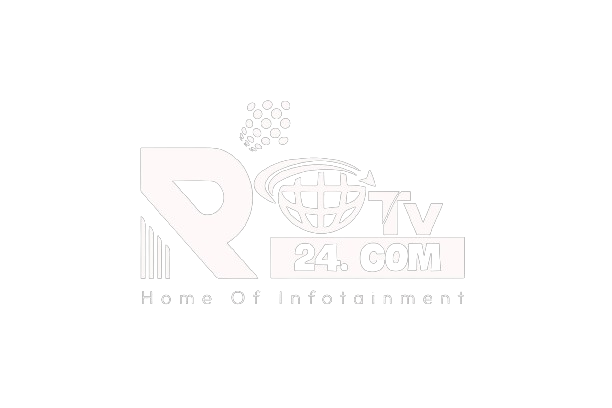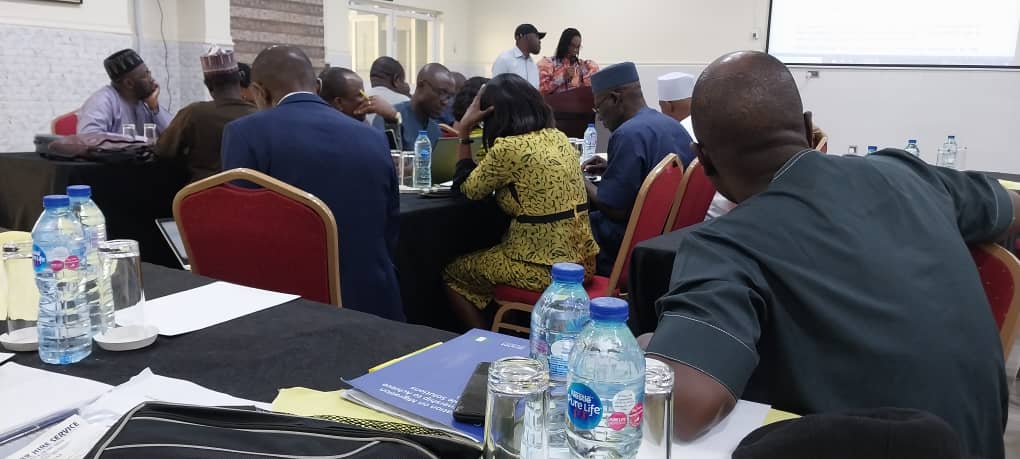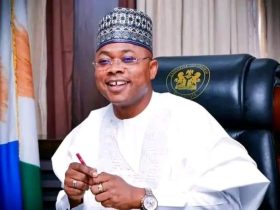Under the Cooperation on Migration and Partnerships, the Federal Ministry of Women Affairs has gathered social workers and experts to enhance and boost the capacities of relevant stakeholders to address the needs of migrants which may find themselves in situations of vulnerability.
The Ministry in conjunction with International Organization for Migration (IOM) assembled social workers and experts to review and validate the Best Interest Procedures (BIP) Guideline for Migrants in vulnerable situations to achieve sustainable solutions initiative (COMPASS).
A statement Signed by Olujimi Oyetomi, Director, Press & Public Relations to the ministry of women affairs revealed that the review and validation exercise started on Monday, 6th February and is expected to be concluded on Thursday, 9th February, 2023 in Port Harcourt, Rivers State.
Prior to the review and validation exercise going on in Port Harcourt, the Ministry concerned with the issues of vulnerable migrants has in December, 2022, assembled the selected stakeholders to give vital inputs and observations which are reflected in draft document.
The document was intended to be a guide or blueprint to front line providers of Best Interests Assessment (BIAs), Process Planning and the Best Interests Determination (BID) services for vulnerable migrants.
In attendance at the Port Harcourt review and validation meeting are: Abiola Osunfowokan, Federal Ministry of Youths and Social Development (FMY & SD)Twin; Marcus Williams, Association for Orphans and Vulnerable Children NGOs in Nigeria (AONN); Christian Oseghale, RICH; Ulunta Justice, Twinning for Health Support Initiative, Nigeria (THSI-N); Ogedengbe Kayode, Association of Medical Social Workers of Nigeria (AMASWON); Olakunle Sanni, Child Protection Network (CPN) Nigeria; Tunde Baiye, Association of Federal Social Workers of Nigeria (AFSWON); Hadiza Aminu, Nigeria Correctional Service; Jattau Kpeno Gbana, National Centre of People with Disabilities (NCPWD); Sanni Kudirat Bolanle, FMOH.
Others include Augustine Mamedu, Consultant; Jamal Ali Ahmed, Jigawa State Polytechnic, Aute; Abubakar Alhassan Bichi, FMC Azare; Kenechi Umeh, FMWA; Ayangunwa James, Association of Social Works Educators of Nigeria (ASWEN); Aliko Hamwen, Social Welfare Association of Nigeria (SOWON); Balogun Olagunju, Tai Solarin University; Ben Okwesa, FMWA; Olujimi Oyetomi, FMWA; Olujimi Jacob, Association of Federal Social Workers of Nigeria (AFSWO); Anyanegbudike Victoria, Nigeria Immigration Service (NIS); Nasiru Babasaleh, FMWA; Dibor Ugochukwu, FMWA; Ogan Nwadirim, NSCC; Oti Emilia, FMWA; Sadiq Rafat, FMWA; Chibalam Katonge, IOM; Aye Olatunde, IOM; Sunday Omomeni, IOM; Sarah Shimson, IOM; and Fasan Henry, IOM.
It should be recalled that Nigeria as well as some other countries of the World have been assailed with issues of women, children and older persons who need assistance in one form or the other on how to resolve their situations before such escalate to un-manageable proportions such as deprivations, depression, mental ill-health and in extreme cases, death.
For the purpose of the guidelines being developed, vulnerable migrants were defined to include migrant children at risk, adults who as a consequence of their mental, physical and psychological health challenges are not able to make decisions for themselves – persons with disabilities, persons with special needs, older persons, victims of trafficking and presumed and potential victims of trafficking and a few others.
The Focal Person of the Federal Ministry of Women Affairs detailed to coordinate the development of the standard of the document, Mr. Benjamin Okwesa of the Gender Affairs Department made sure that the appointed consultant provided by IOM engaged stakeholders on hands-on to evolve a standard document to guide line providers of Best Interests Assessment (BIAs), Process Planning and the Best Interests Determination (BID) services to vulnerable migrants.
Mr. Okwesa asked the congregated social workers and stakeholders to critically look at the draft of the developed BIP Guidelines for Vulnerable Migrants to find out if the faulty areas pointed out at the 22nd December, 2022 Lagos meeting have been addressed, with a view to validating the Guideline before the end of the three-day event. He further expressed the unreserved gratitude of the Ministry to IOM for its immense support.
At the Port Hacourt review and validation meeting for the BIP Guidelines for Vulnerable Migrants, representative of IOM, Ms Chibalani Katongo briefly chronicled the processes the BIP Guideline had undergone and expressed her delight over the fact that the document will be the first of its kind in West Africa.
Chibalani supported. Mr. Okwese at urging participants and stakeholders to engage actively in validation of the document, expressing gratitude to the Federal Ministry of Women Affairs (FMWA) for the opportunity given to IOM to support the laudable project.
IOM also raised some observations on the draft document earlier done in Lagos, conceding that its observations are subject to the decision of the Ministry’s experts, Agencies, Non-Governmental Agencies (NGOs), Civil Society Organizations (CSOs) after those have been duly considered.
The Stakeholders necessary for the administration of the BIA and BID include Federal Ministry of Women Affairs, Federal Ministry of Humanitarian Affairs, Disaster Management and Social Development, Federal Ministry of Health, Ministry of Foreign Affairs, Ministry of Interior, Nigeria Immigration Service (NIS), Nigeria Police Force (NPF), Nigeria Security and Civil Defence Corps (NSCDC), Nigeria Correctional Service, National Agency for Prohibition of Trafficking in Persons, National Commission of Refugees, Migrants and Internally Displaced Persons, National Commission for Persons with Disabilities, Civil Society Organizations (CSOs)’ Representative, International and National Government Organization (INGOs), National Senior Citizens Centre (NSCC), IOM, UNHCR, UNICEF, and other States’ equivalent of the Ministries and Agencies named at the Federal level. Federal Ministry of Justice and Federal Ministry of Education were identified to be called in cases where that become necessary.
Thw statement further said that a representative of National Senior Citizens Center (NSCC), Mr. Ogan called the attention of the meeting to the area where the Guideline adopted the definition of Senior Citizens as provided for by the NSCC Act of 2018., informing the meeting that the benchmark of 70 years as provided for by the Act, should be replaced with 60 years, as the former does not align with other documents such as National Policy on Aging and other international documents which provided for the benchmark of 60 years, he further argued that public servants even retire at the age of 60 and the center has sent in the affected provision to National Assembly for possible amendment. On this, the consultant who is a lawyer, differed. He argued that 70 years is what is currently stated in the Act.
Mr. Ogan of NSCC further drew the attention of the meeting to the omission of the NSCC in the referral pathway as contained in the annexes of the draft document.
The Assistant Legal Adviser of the Federal Ministry of Women Affairs, Mrs. Kenechi Umeh, brought up the issue of the newly signed Mental Health Act which replaced the Lunacy Act of 1958 for such to be taken into consideration when doing the final review and validating of the document.
While reacting to this observation, the consultant engaged to perfect the document under review, informed those present that he has already taken that into consideration though it was not reflected in the copy sent to participants as that was sent before the 5th of January, 2023 when the Bill was signed into law.









1 Comment